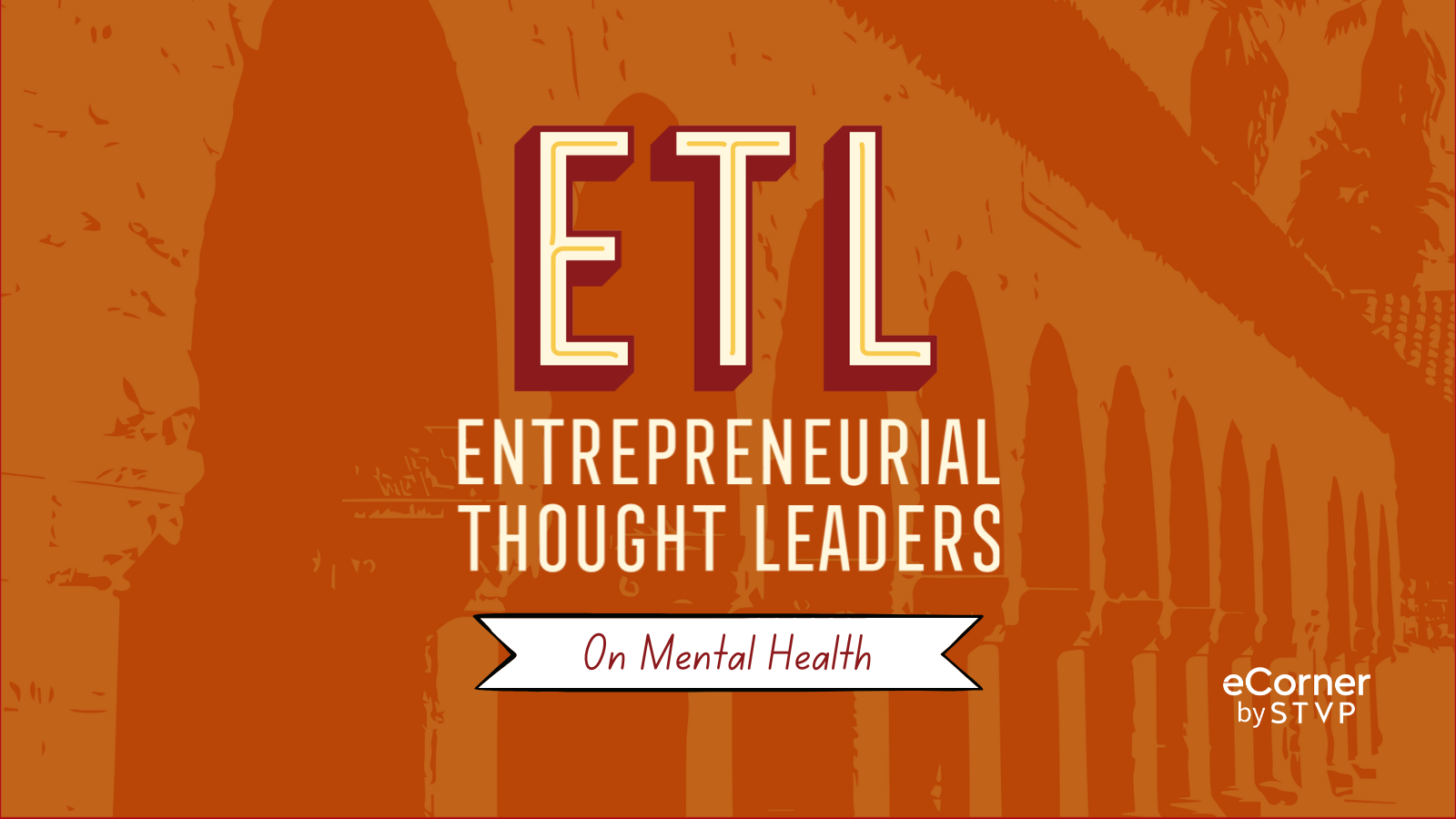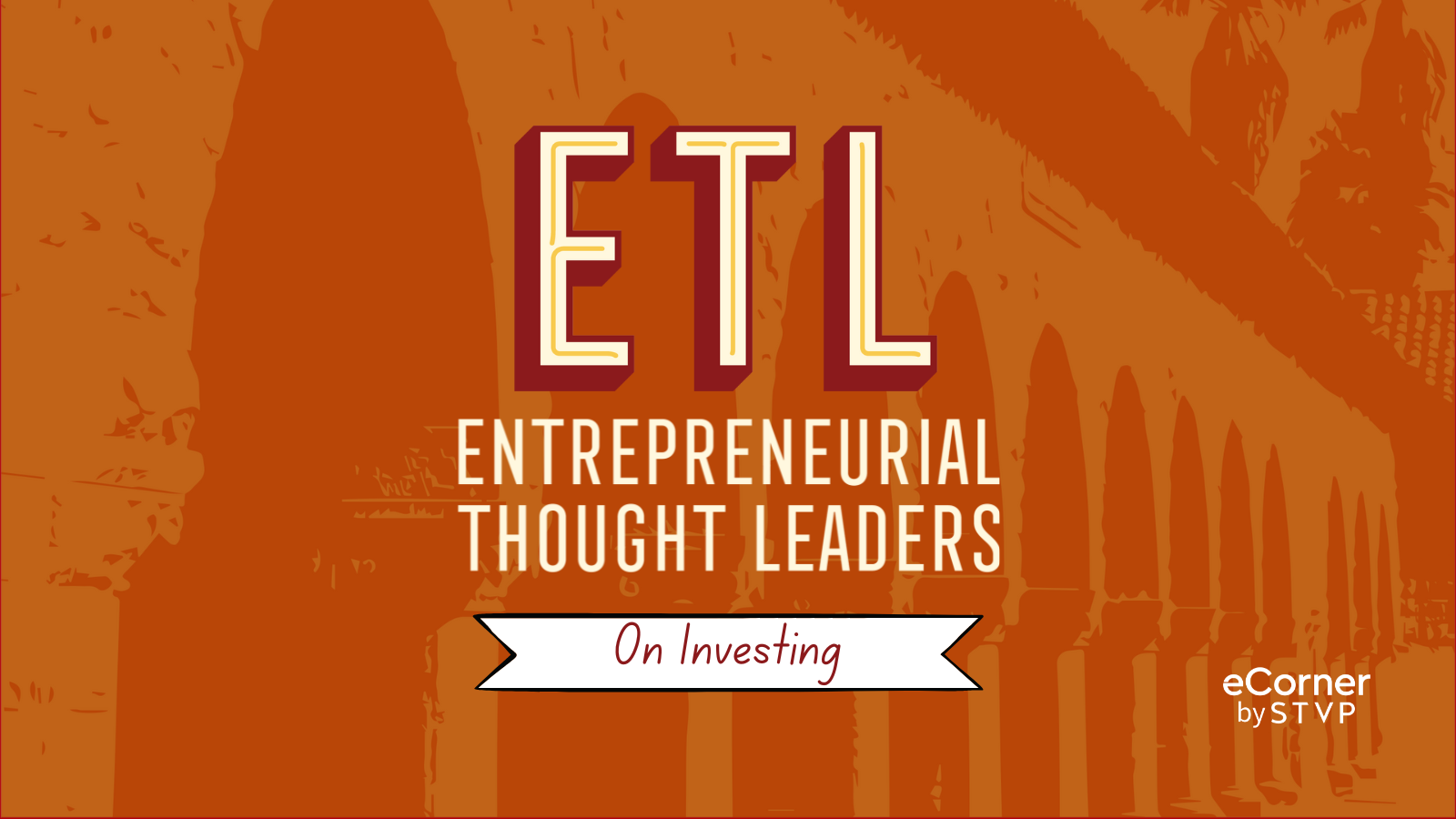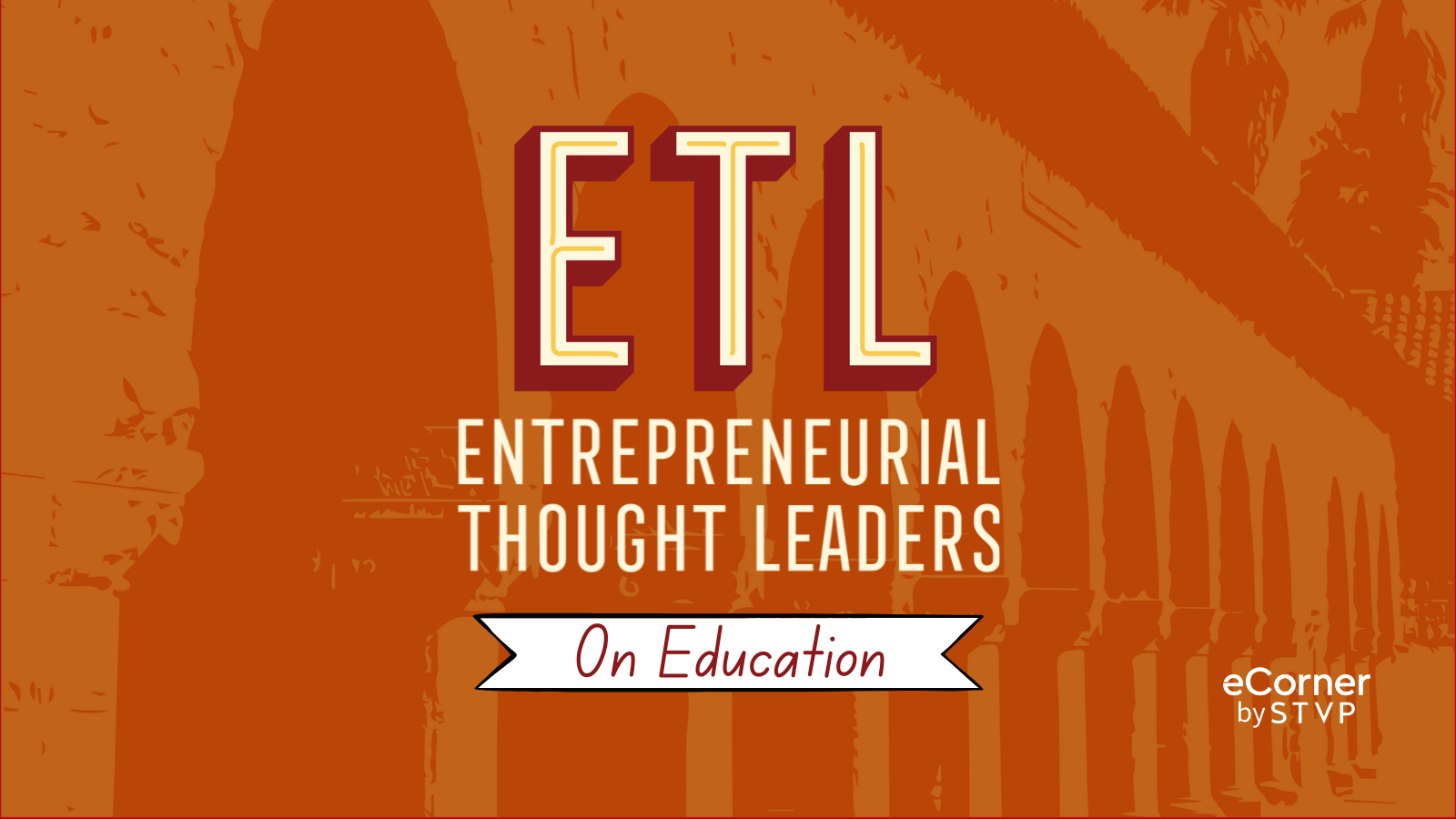Mental Health, Well-Being, and the Thriving Entrepreneur

As we launch the Stanford Initiative for Entrepreneurs’ Resilience and Well-Being (SIER), we have the opportunity to reflect on the perspectives that have given voice to the need for mental health supports and also provided a spotlight on triumphs and innovations around mental, emotional, and physical well-being. SIER will foster resilience and well-being among aspiring and practicing entrepreneurs through a multidisciplinary approach, incorporating research and learning opportunities that support students and the field of entrepreneurship.
Our ETL series has hosted conversations that provide a window into the challenges entrepreneurs face with their own well-being in high-pressure startup situations. As SIER looks to understand and promote the traits that define successful entrepreneurs, especially in health science and technology, let’s look back at a few ETL interviews for insights on mental wellness and creating an emotionally sustainable ecosystem for entrepreneurs.
Mental Health for Entrepreneurs, Andy Dunn
First up, we look back at lecturer Ravi Belani’s conversation with Andy Dunn, founder of the menswear line Bonobos. Dunn speaks frankly about his own struggles with bipolar disorder and how his mental illness didn’t define him but rather helped him innovate and become the creative founder his company needed. He challenges the field to transform the stigma attached to mental illness to better recognize the strengths of those who are living with one— like the creativity, the drive, and the ability to overcome adversity.
“We feel like what happens with mental health can limit and ruin our career. How can we make disclosure not career-limiting but career-enhancing? This person has a superpower and we’re all attuned to it to help people stay healthy and get the most out of it.”
How do we unlock the potential of neurodiversity and not be limited by it? You can watch the entire talk here, or just the highlights.
Burnout Manifesto, Gabriel Parisi-Amon
Burnout is familiar to all entrepreneurs and takes its toll. Gabriel Parisi-Amon of Nebia takes on the “perfect founder” myth and asks us to reconsider the system that inevitably leads to burnout. “The pressure to overcome challenges with changing atmospheres, unrealistic deadlines, unpredictable schedules, physical demands, added responsibility without clear guidance, and difficult interpersonal demands with colleagues or customers” weigh heavily on founders, and, Parisi says, “A little bit of positive self-talk goes really far… We’re often hardest on ourselves. When you catch that voice in your head beating yourself up, just stop it. Imagine you were giving your best friend advice… I guarantee you wouldn’t be so mean to him.”
Parisi-Amon offers practical advice on priorities and perspectives for founders whatever the pressure stage they are in. “If you don’t prioritize and personally understand what work you should be doing, you will work harder and longer until you can no longer do anything… This is burnout in a nutshell.”
Mental Health Tech, Maria Barrera, Clayful
As an entrepreneur in education, Maria Barrera, founder of Clayful, started to apply her training as a mechanical engineer to thinking about mental health, to the challenges young people were facing in schools, post-pandemic.
“We think about systems, right? We think about the whole thing and looking at our mental health and our education system, if that’s where we are, there needs to be something that needs to be done differently for us to not have eight-year-olds dying [by suicide]…That was a big inflection point…I basically quit my job and just started trying to figure out how do I do something about this?”
In true Stanford d.school fashion, Barrera says she went into a lot of need-finding, talking to everyone she could, finding “aha” moments that would help shape her company’s preventative approach to emotional support for kids. One was a conversation with a clinical psychologist who said, “by the time a kid [in need] gets to me, everything that has to be undone takes so much time.” Her point being: prevention is more impactful than intervention. Learn more about Clayful’s approach in Barrera’s conversation with Belani from earlier this year.
Are you a founder or startup leader? Now is the time to prioritize mental health and well-being within your organization. Entrepreneurs and venture capitalists can shift to demonstrate that mental health is not just a priority, but a valuable asset. Be sure to follow SIER as the initiative takes on research and programming alike.



